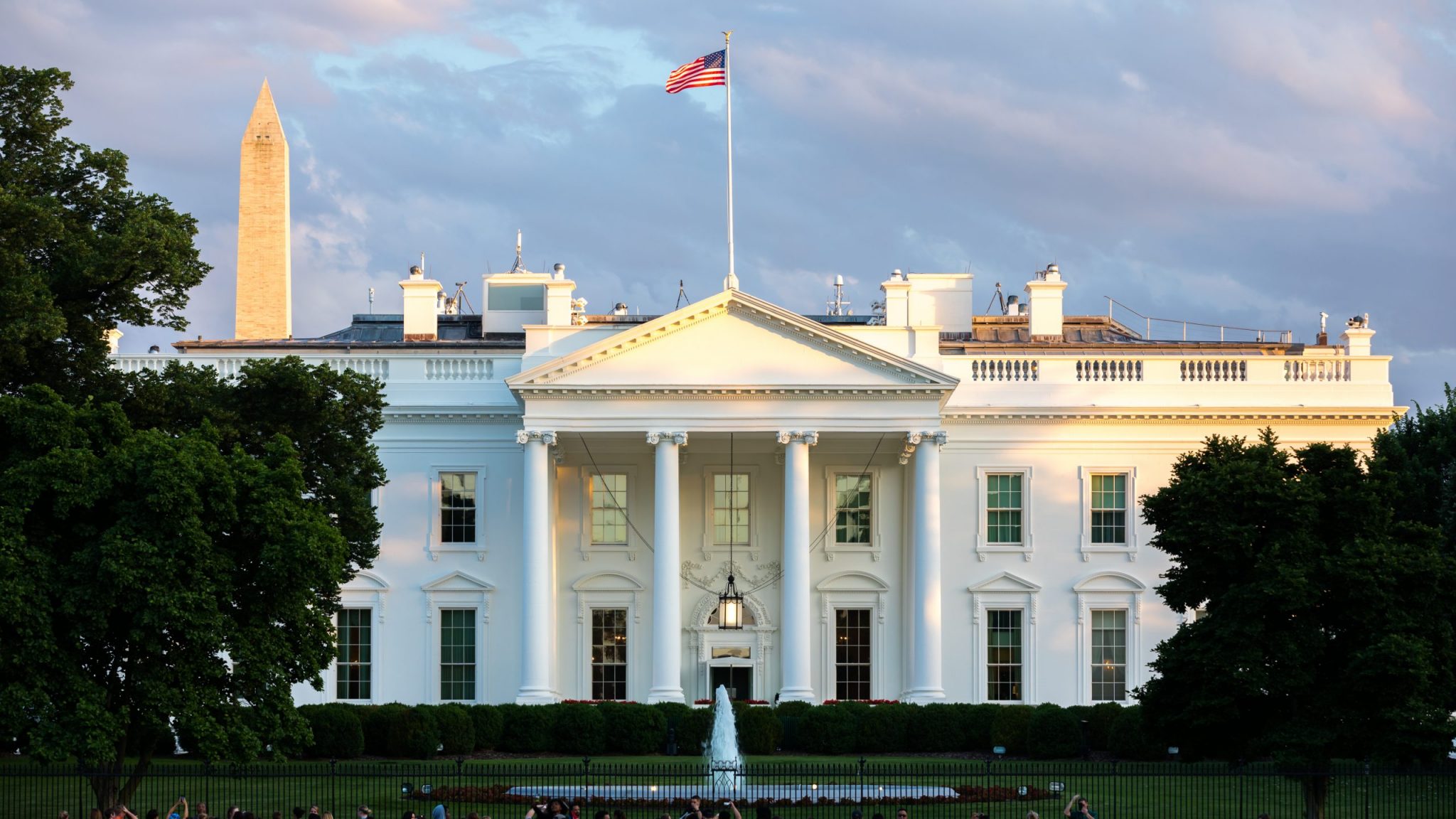Yesterday, the Biden administration released its National Security Strategy, which focuses on the competition between democracy and autocracy, lays out threats coming from Russia and China, and notes that the US must both strengthen democracy at home and continue to work with allies to defend it abroad.
Experts from the Alliance for Securing Democracy at the German Marshall Fund react to the new strategy below, sharing their perspectives on aspects from Russian kleptocracy to US-China tech competition and the view from Europe.
David Salvo, Deputy Director: “The National Security Strategy’s description of Russia as a destructive force on the international stage does not mince words. It appropriately points out how Russia’s unconscionable actions in Ukraine reverberate far beyond that country’s borders and fit into a broader Russian strategy to tear down the global order. From President Putin’s nuclear saber-rattling to his government’s numerous operations to destabilize democratic institutions and societies, Russia poses an immediate and dangerous national security threat to the United States. To its credit, the White House clearly states how it will contend with the Russian threat, mincing no words here either. This administration—and, we hope, future US administrations—will continue to support Ukraine and defend every inch of US and NATO territory. The administration also signals it will respond to Russia’s use of nuclear weapons, being appropriately vague in describing what that response might look like. What is surprising about the document is its passing reference to the Russian people, with a shrug of the shoulders attitude towards their fate. ‘You’re on your own,’ it seems to suggest. While the fate of Russia is certainly for the Russian people to decide, the dismissive attitude could signal a deviation in American strategy, where support for democracy and development in Russia is, perhaps, now seen as counterproductive, futile, or simply no longer in our national security interest.”
Zack Cooper, Co-Director: “The National Security Strategy largely reiterates existing US policy on China, but puts particularly emphasis on ‘out-competing’ Beijing. The strategy also emphasizes the fundamental systemic competition between democracies and autocracies, describing this moment as an inflection point. Chinese officials will be unhappy with this approach, but it is very much in line with Biden’s public comments and the administration’s initial National Security Strategic Guidance.”
Lindsay Gorman, Senior Emerging Technologies Fellow: “For the first time in the history of the National Security Strategy, technological competition appears center stage in the overarching contest between democracy and autocracy, and not a moment too soon. In a tone that is clear-eyed but also carefully optimistic, the NSS—and the ongoing work on investments, AI and biotechnology, and multilateral cooperation that it describes—now recognizes that technology leadership is a new form of national power, vital to ‘Outcompeting China,’ ‘Investing in Our Strength,’ and ‘Shaping Global Rules.’ Highlighting the US as a home for global innovation talent and our network of alliances and partners, which authoritarian regimes largely lack, the NSS rightfully leans into capitalizing on the strong asymmetric advantages democracies have in this larger fight against autocracy. With the US-EU Trade and Technology Council, the Quad, the historic CHIPS and Science Act, AI Bill of Rights, and bioeconomy EO, the administration already has much to show in how it is reclaiming and securing America’s technological leadership into the future—and making allies and partners central to that effort.”
Josh Rudolph, Malign Finance Fellow: “Never in the history of US national security strategies has so much focus been placed upon combating corruption and kleptocracy. The new strategy dedicates a page to this threat. It builds upon the US Strategy on Countering Corruption released almost a year ago, including an update mentioning the counter-kleptocracy initiatives that the US government launched earlier this year in response to Russia’s continued invasion of Ukraine. And these are more than just words. The most recent example of these efforts came yesterday, when the US Justice Department announced that the property manager of a sanctioned Russian oligarch was arrested in London—and expected to be extradited to the United States—for helping the oligarch move his artwork out of the United States and funnel $1 million into the United States to pay upkeep on his US mansions. These strategies and actions are doing the hard work of uprooting the dangerous proceeds of kleptocracy from the global economy.”
Bryce Barros, China Analyst: “This National Security Strategy frames ASEAN member countries and the Pacific Island states as central actors in the Indo-Pacific. Focusing on this region through the lens of the US’s five regional treaty alliances and closest regional partnerships is the best way to ensure that the area remains ‘open, interconnected, prosperous, secure, and resilient.’ These relationships are especially important as countries in the region seek to strengthen their democratic processes, civil society, and press to withstand China’s meddling in their digital information stacks. Similarly, the National Security Strategy conveys that the United States should support African leaders as they strive for ‘transparency, accountability, fairness, inclusion, and equity.’ Working with African leaders to improve governance and provide more capacity to scrutinize their foreign partnerships in a way that does not stifle human rights is key to this National Security Strategy’s success.”
Vassilis Ntousas, Head of European Operations: “The National Security Strategy arrives at a moment when Europe is under the shadow of war and the fundamentals of the continent’s security and prosperity are questioned. As such, the new strategy will be closely read and analyzed in Brussels and in national capitals all across Europe. Delivering on the document’s balancing act between the aims of ‘outcompeting China and restraining Russia’ will certainly need international partners, and Europe is identified as a key partner in this regard along with democratic allies and partners in the Indo-Pacific. The strategy’s third overarching aim of restoring democracy at home will also ring true across the continent, as challenges to the quality of democracy in many European countries are on the rise. From democracy to digital, the focus will now be on how to quickly operationalize a more expansive joint agenda of action, at a time when domestic political developments on both sides of the Atlantic risk upending long-established certainties of the transatlantic relationship.”
The views expressed in GMF publications and commentary are the views of the author alone.










